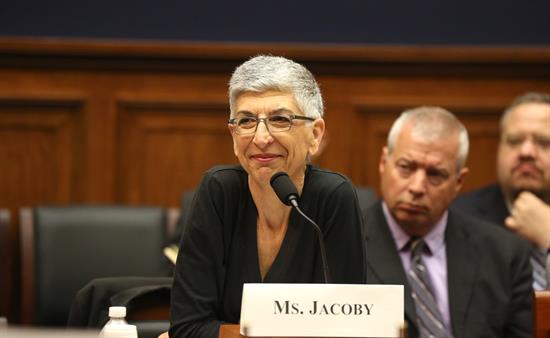Today, the Higher Education and Workforce Development Subcommittee held a hearing on private sector solutions to address the nation’s skills gap by helping job seekers learn the skills they need for a good-paying job.
The hearing highlighted how American companies are addressing the shortage of six million workers, and some of the reasons employers cannot find highly skilled worker to fill the jobs available.
A 2015 survey of over 40,000 employers in 42 countries found the top three reasons employers worldwide cite when asked why they are having difficulty filling jobs are a lack of available applicants, lack of technical competencies, and lack of experience.
“There are plenty of in-demand jobs available, but individuals with the skills and qualifications needed to fill them are scarce,” said Subcommittee Chairman Brett Guthrie (R-KY). “Faced with these challenges, private sector businesses and industries have taken matters into their own hands and are devising creative approaches to bridge the skills gap.”
Members of the subcommittee heard from witnesses who discussed how companies in the private sector are starting their own initiatives to provide potential employees with the skills they need to fill available jobs.
“Most IT and cybersecurity job openings require some sort of post-secondary credential or degree,” said Steven Partridge, Vice President of Workforce and Economic Development, Northern Virginia Community College. “As a result, it takes more time for qualified workers to get into the job market, since they often must first earn degrees.”
Partridge went on to describe how the Tech Talent Pipeline in Northern Virginia is proving to be a successful collaboration between companies, local policymakers, and educational institutions to give students the skills they need to fill available jobs in the IT industry.
“This ambitious effort unites our public school systems, post-secondary institutions, nonprofit and public workforce partners, and economic developers to create a system to triple the number of students pursuing technology-related fields of study, such as cyber security or machine learning, over the next decade.”
“The good news I bring is that many employers are stepping up, providing or partnering to provide innovative career preparation,” said Tamar Jacoby of Opportunity America. “The challenge for the future: to encourage and sustain this activity, even when the business cycle turns down and labor markets are no longer as tight as they are today.”
Witnesses also testified how Congress can continue to support the efforts of the private sector through legislative solutions.
“We really do need your help,” said Ryan Costella, Director of Strategic Partnerships, Click Bond. “There is a role for Congress to help facilitate, for instance, our access to the best and brightest who are eager and willing to work.”
Most notably, witnesses expressed support for the unanimous House passage of the Strengthening Career and Technical Education for the 21st Century Act (H.R. 2353), and called on the Senate to take up the bill. Witnesses also noted provisions within the PROSPER Act (H.R. 4508) that would expand student access to and participation in industry-led earn-and-learn programs and apprenticeships, and partnerships between businesses and institutions of higher education.
“We’re hoping PROSPER will spur a lot of schools and a lot of employers on to take advantage of what can be done for workforce development,” said Rep. Virginia Foxx (R-NC), chairwoman of the Committee on Education and the Workforce.
“These legislative initiatives will be instrumental in closing the skills gap, but members of this committee will greatly benefit from hearing more about the solutions emanating out of the private sector to strengthen our national workforce and fill good-paying jobs,” said Rep. Guthrie.
The Committee on Education and the Workforce has led efforts throughout the 115th Congress to find solutions to close the skills gap and empower Americans to use their talents in a good-paying job.
# # #

